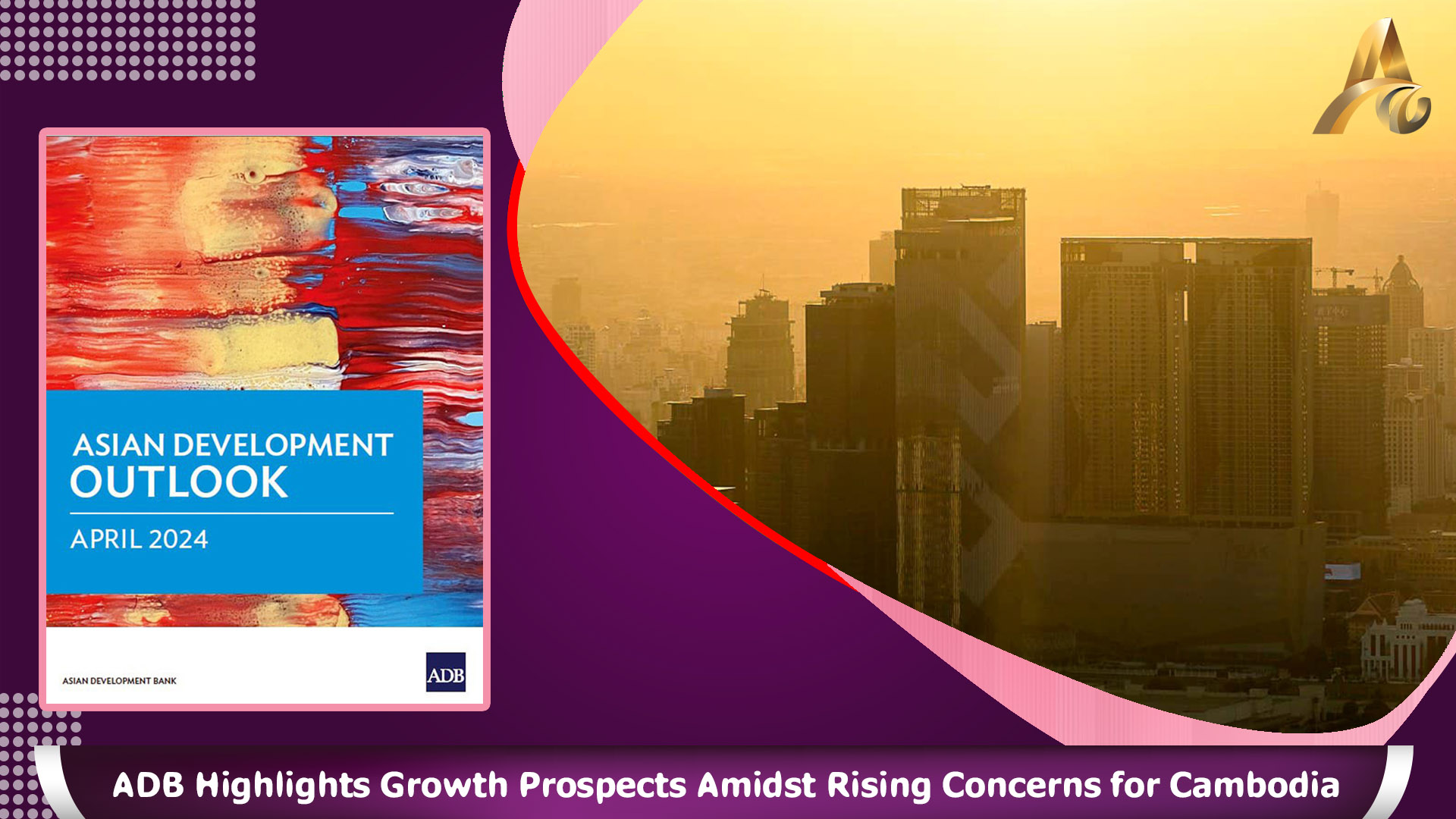Phnom Penh, April 12, 2024 – The Asian Development Bank (ADB) provided an optimistic forecast for Cambodia’s exports of goods and services on Thursday, predicting strong growth for the year. However, the bank simultaneously cautioned against several risks that could potentially dampen the broader economic outlook.
Key concerns include the possible slower growth in major economies such as the United States, Europe, and China. Additionally, Cambodia's high level of private debt might affect the growth of the financial sector and the broader economy. The ADB's annual Asian Development Outlook also highlighted the threat of energy price fluctuations and the adverse impacts of extreme weather conditions.
For 2024, the ADB projects Cambodia's economy to grow by 5.8 percent, partly driven by momentum in the exports of garments, footwear, and travel goods since the final quarter of the previous year. Industrial output is expected to accelerate, with manufacturing outside the garment sector likely contributing to sustained export growth. However, the construction sector might see only modest growth due to a downturn in Chinese real estate investment, indicating a gradual recovery for Cambodia's real estate market.
The report suggests a continued recovery in tourism, expected to boost service exports with projections of a 5.4 percent expansion this year. The recent inauguration of Siem Reap International Airport is anticipated to attract more visitors, especially from ASEAN countries, buoyed by the region’s positive economic outlook.
Agricultural sector growth is forecasted at 1.3 percent this year, supported by rising export demand and domestic consumption, alongside benefits from trade agreements and Cambodia's participation in the Regional Comprehensive Economic Partnership.
On the fiscal front, the National Bank of Cambodia is focused on maintaining a stable exchange rate against the US dollar, ensuring price stability and public confidence in the Riel. Plans include setting a policy rate to anchor market interest rates while promoting the broader use of the national currency.
The government's revenue mobilization strategy aims for greater tax administration efficiency without introducing new taxes, aligning spending with education, healthcare, and social assistance priorities.
ADB also noted Cambodia's progress towards graduating from the UN's least-developed-country status by 2027, emphasizing the potential long-term benefits such as attracting higher foreign investment and stimulating economic diversification. However, it warned of short-term challenges, including the loss of trade benefits and a reduction in official development assistance.























